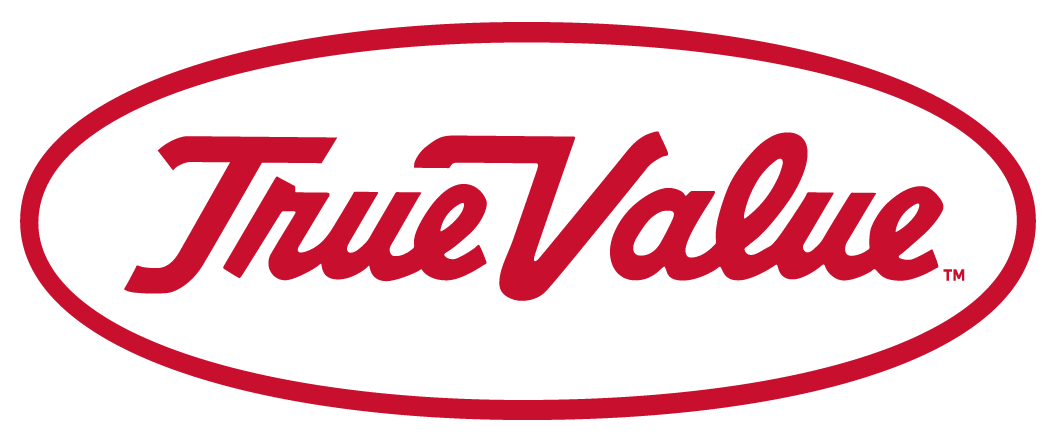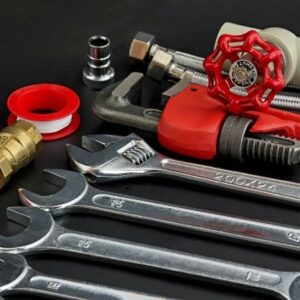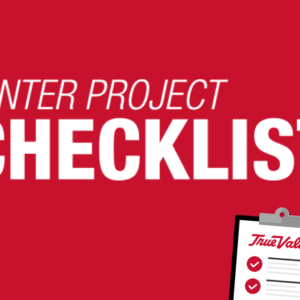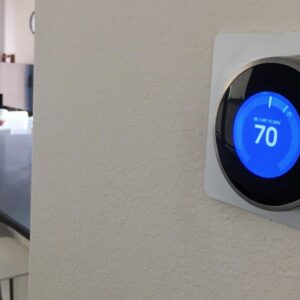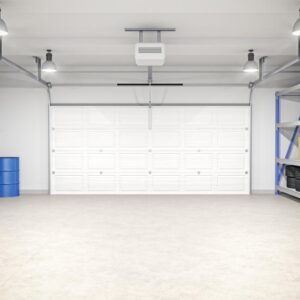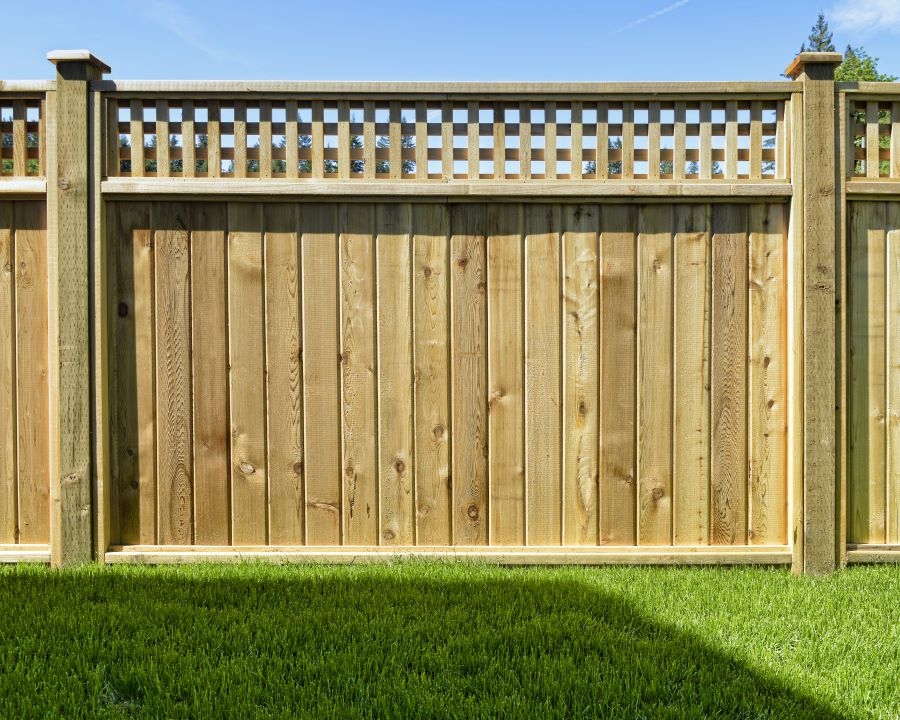Your choice of garden fencing is more important than you might realize. A property’s fence influences its curb appeal. Not only that, but it can impact your yard’s safety and privacy. Ultimately, it can change how you use your backyard and approach outdoor living.
Putting up a fence is a fantastic DIY project that doesn’t require a ton of skill to complete. But it’s not something you should rush through. There are many types of fencing for yards.
Choosing the right fence makes all the difference. This fence buying guide will give you all the information you need to select the perfect style and material for your yard.
The Most Common Types of Fences for Yards
When you think of a home fence, what comes to mind? Some people think of classic wooden picket fences while others imagine wire fencing built to contain ranch animals. There’s no end-all-be-all style. Like any other home or yard element, you have many options at your disposal.
There are several different types of fences you can build. They can vary dramatically in style, durability, and purpose. Also, the choices you make can significantly impact the price and value of the finished product.
Decorative Metal Fencing


If you prefer some classic aesthetic appeal, you can’t go wrong with decorative metal fences. Metal is one of the more traditional materials used in fencing for homes. Aluminum, steel, and iron are the metals of choice in most cases.
Aluminum is a cost-effective choice. It’s recyclable and relatively lightweight, and it doesn’t rust.
Steel and iron are pricier. However, you get decades of durability. Wrought iron is a lovely material that fetches a pretty penny. But its classic appeal can do a lot to boost a house’s property value. Steel and iron fences also develop a beautiful patina that only looks better with time.
The purpose of this home fence is in its name. Metal fences are primarily for decorative purposes. However, they can also offer protection if the design is right.
Pros:
- Classic aesthetic appeal
- Low maintenance requirements
- Capable of lasting decades
- Decent security capabilities
Cons:
- High up-front costs
- More extensive installation process
Chain-Link Fencing


Chain-link fences are an excellent choice if up-front costs are a concern. Of all the house fencing options, chain-link is usually the easiest on the wallet. Also, these fences are relatively easy to put up. You can pick up individual chain-link components and assemble them to get the level of containment and security you need.
This fence type utilizes a series of chain-links. The intertwined aluminum wire creates a net-like structure that offers plenty of security.
Because they use thin wire, chain-link fences don’t offer much privacy. But it’s a trade-off. Many homeowners consider chain-link the best backyard fence material if you have a view. It doesn’t obstruct much, letting you enjoy nature in all its glory.
Pros:
- Cost-effective
- Not impacted by temperature changes
- Excellent containment
- Easy installation
- Low maintenance requirements
Cons:
- Not the most private fence type
- Minimal impact to property value
- Fewer design options
Vinyl Fencing




Of all the different types of fences available, vinyl is the one that’s becoming increasingly popular among homeowners. It’s not hard to see why. Manufacturers create these backyard fences out of PVC. You might use wooden posts between the preassembled panels as the structural foundation, but most of the wall has a protective layer of vinyl.
Using vinyl means you’ll have no need to worry about water damage. Of course, vinyl has its trade-offs, too. The design makes it more susceptible to wind damage. Plus, there’s the issue of degradation due to sun exposure.
Still, a vinyl fence has a lot to offer. The low-maintenance design makes it a hands-off investment you can enjoy for many years.
Pros:
- Provides a good amount of privacy
- Straightforward installation
- Flexible style options
- Low maintenance requirements
- Easy to clean
Cons:
- Prone to weather damage
- Higher up-front installation costs
- Susceptible to mold and staining
Classic Wood Fencing




Finally, there’s the classic choice: wood.
Wood fencing is the most traditional type for homes around the country. As a whole, wood is far more versatile than other materials. You can create various designs from simple picket fences to full-blown privacy walls. Wood is easy to work with, and you can get a solid fence up with minimal carpentry skills.
These types of fences do require more maintenance. Pressure-treated wood is a must. But even then, you’ll need to paint or seal the material annually to keep it safe from the elements. The good news is that wood fences are pretty easy to repair should you encounter any problems.
Pros:
- Flexible design options
- Easy to install and repair
- Sustainable choice
- Classic curb appeal
Cons:
- Higher maintenance requirements
- Vulnerable to weather and bugs
- Doesn’t last as long as metal or vinyl
- Choosing the Best Backyard Fence for Your Needs
Now that you’re familiar with the different types of fencing for yards, how do you make the right choice? Cost and longevity shouldn’t be your only considerations. Think about your goals and what you want your fence to achieve. Knowing where your priorities lie can make the right choice much clearer.
Privacy
Let’s face it: Privacy is a big concern for many homeowners. It doesn’t matter whether you live in a suburban neighborhood or a rural area. No one wants to feel like people are looking in.
If keeping prying eyes out is your main concern, go with a tall, solid fence for home privacy. The best fencing for privacy is usually vinyl or wood. Anything that blocks the view from the road or adjacent lots will serve you well.
Security
Fencing of any kind can dramatically improve your property’s safety. It’s an upgrade that goes a long way. While determined burglars can still find ways to get around fences, these structures certainly make your home a challenging target.
Any fence is an improvement over no fence at all. However, wood, vinyl, and even decorative metal fences are good bets for security. Chain-link is easy to climb, so it doesn’t do much to deter thieves and trespassers.
Curb Appeal
Ask any real estate agent, and they’ll tell you that a well-designed fence can improve your home’s value. People want to install fences. It’s one of the first improvements new homeowners make after purchasing a house.
Having a solidly built fence in place is like an instant value boost. If you want to add the most value possible, stick to decorative metal fences.
Safety
Finally, keep safety in mind. If you have a pet or a young child, a home fence is an indispensable investment to prevent accidental escapes.
All the fence types discussed earlier provide good safety. Pay attention to the space between fencing materials. Designs with smaller gaps are the safest bets to keep kids and pets playing safely.
The types of fencing available on the market today give you plenty of ways to make your property safe, stylish, and private. Use the handy store locator tool to find a True Value store near you, pick up the supplies, and start your fencing project!
